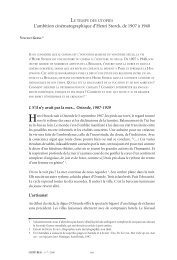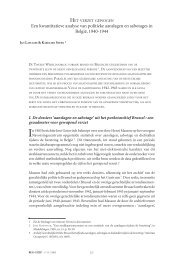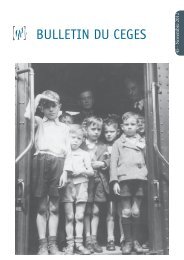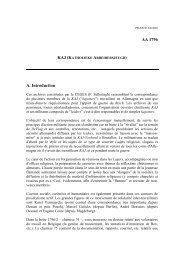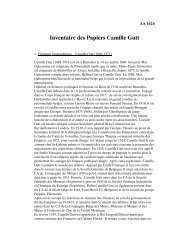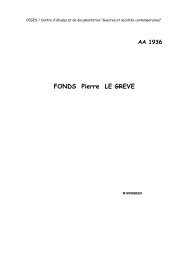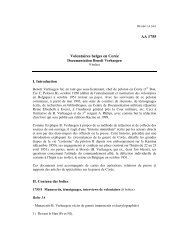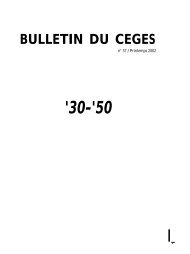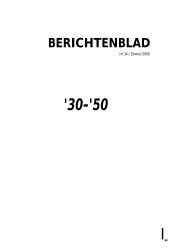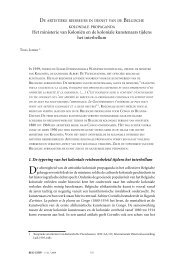Artsen Zonder Grenzen-België, genese van een atypische NGO ...
Artsen Zonder Grenzen-België, genese van een atypische NGO ...
Artsen Zonder Grenzen-België, genese van een atypische NGO ...
Create successful ePaper yourself
Turn your PDF publications into a flip-book with our unique Google optimized e-Paper software.
Samenvattingen / Résumés / SummariesJEAN-BENOÎT FALISSEHUMANITARIAN CONTRACTORSMédecins sans frontières Belgium :the genesis of an atypical non-governmental organisation, 1980-1987From the end of the 1970s onwards, the Médecins sans frontières (MSF) movementestablished itself as a major actor in the world of humanitarian aid andcooperation in development. Initially French in origin, the organisation expanded,and a Belgian section was established in 1980. Within a few years, this Belgian sectionwas functioning on a financial, human and technical scale comparable to that of itsFrench parent organisation, and began to develop its own methods of action andorganisation.Through the use of unpublished internal documents and interviews with former leadingfigures in MSF, this article analyses the workings of the machinery of MSF Belgiumduring its first years of existence (1980-87). What emerges from behind the clichés whichall too often constitute the only available history of non-governmental organisations,is an organisation characterised by a high level of professionalism. Motivated by a new– more technical and consciously apolitical – concept of humanitarian aid, MSF Belgiumput in place an operational structure which resembled closely that of a classical privatebusiness. Relying on high-quality recruitment from the Institute of Tropical Medicine atAntwerp, the organisation developed particular mechanisms (kits, guidelines, trainingcourses, etc) and forms of expertise, which had in many cases b<strong>een</strong> developed inresponse to the challenges encountered during its first long-term mission in Chad. Asa consequence, MSF Belgium rapidly came to enjoy a reputation for excellence, and itsimage became a model to be emulated by the wider society, including by institutions.This enabled it to receive important financial support, notably from the EuropeanDevelopment Fund, as well as to develop technical partnerships with universities, nongovernmentalorganisations and companies.In a final section, this article re-examines the crisis of identity and leadership whichMSF experienced in the middle of the 1980s, and which led MSF Belgium to reaffirmand reinvent the apolitical character of its discourse and interventions.KOEN AERTSLA RÉPRESSION DE LA COLLABORATION APRÈS LA SECONDE GUERRE MONDIALEReprésentation et rechercheLa représentation et la perception de la répression après la Seconde Guerre mondialefut pendant longtemps en Belgique plutôt matière à débat sociétal qu’à rechercheshistoriques (académiques). Les tentatives pour contenir le passé de guerre dans312



